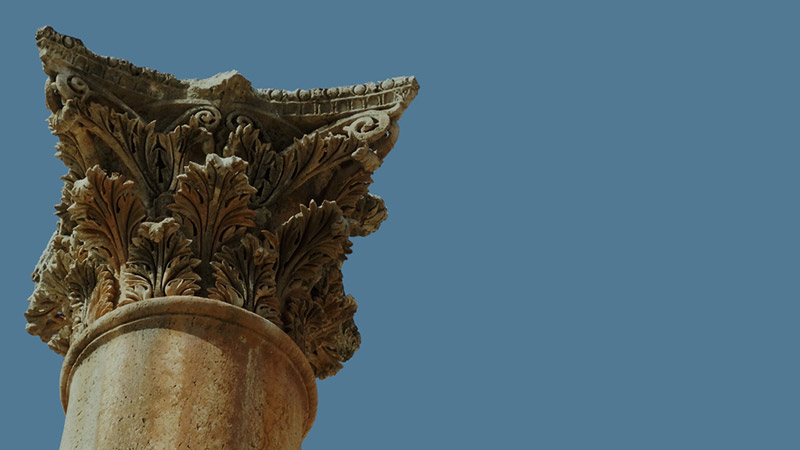More Results
Showing 12 of 110
Encyclopedia

Standing Stones
Sacred StonesLong before the Israelites entered Canaan, pagans in the Middle East erected sacred stones to honor their gods, to declare covenants and treaties between cities, or to honor an important event that could only be explained by the super...
MORE
Susita
This photograph is taken from Mount Arbel on the western shore of the Sea of Galilee near Tiberias. The hilltop where Susita (Hippos) was located is clearly visible on the eastern shore. Towering over the Sea of Galilee, Susita is connected to the...
MORE
Synagogue Beginnings
There are many theories about the origin of a gathering place called "synagogue." The Greek word for synagogue means "assembly" and is used in place of the Hebrew word meaning "congregation" or "community of Isra...
MORE
Synagogue of En Gedi
This spectacular mosaic floor from a synagogue built in the second or third century was found at the oasis of En Gedi along the Dead Sea. The synagogue hall shown here is 45 feet long and about 30 feet wide. It follows the synagogue style found in...
MORE
Synagogue of Korazin
Korazin was one of the cities where "most of his miracles had been performed" (Matt. 11:20). Typical of Galilean towns of the time, the synagogue occupied a prominent place on an elevated platform in the center of town, symbolizing the i...
MORE
Synagogue Today
The Synagogue ContinuesThe early Christians continued to attend synagogues, although they had a new interpretation of the Torah since Jesus had been revealed as Messiah (Acts 13:14). The new community of Jesus was born out of the synagogue, and th...
MORE
Synagogues of Jesus' Time
Synagogues continued to be a focal point for Jewish life during the first century. By the time Jesus' ministry began, a synagogue was found in most towns of Galilee. The Gospels specifically mention those of Nazareth (Matt. 13:54) and Capernaum (M...
MORE
The Amazing Galileans
Jesus focused his ministry in one small place in Israel: Galilee, in the three cities of Korazin, Capernaum, and Bethsaida. Although many people today assume that Galileans were simple, uneducated peasants who lived in an isolated area, the truth ...
MORE
The City of Dan
LocationThe city of Dan, originally called Laish, is located in northern Israel. To the east are the remarkable slopes of Mount Hermon, and the city of Caesarea Phillippi. About 30 miles south of Dan lays the Sea of Galilee.ArchaeologyArcheologist...
MORE
The Gate at Dan
Just past the entrance to the gate at Dan, a large stone extends into the street. Just beyond it, along the wall, archaeologists uncovered a cultic high place containing five standing stones. Just beyond and to the left of the large stones, agains...
MORE
The High Place at Dan
Five standing stones (or masseboth) were found in the high place of the gate at Dan. This high place is similar to the ones Josiah destroyed in his reform (2 Kings 23:8) because they were used in the fertility rites of the culture. Standing stones...
MOREGlossary

Tabernacles (Festival, Sanctuary, Succot) Definition
The seventh yearly feast (Lev. 23) when all males were required to come to Jerusalem. The people celebrated Israel's wandering in the desert by living in temporary shelters. Included a water ceremony as part of prayer of rain.
MORE

















